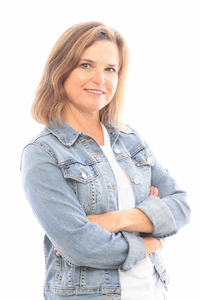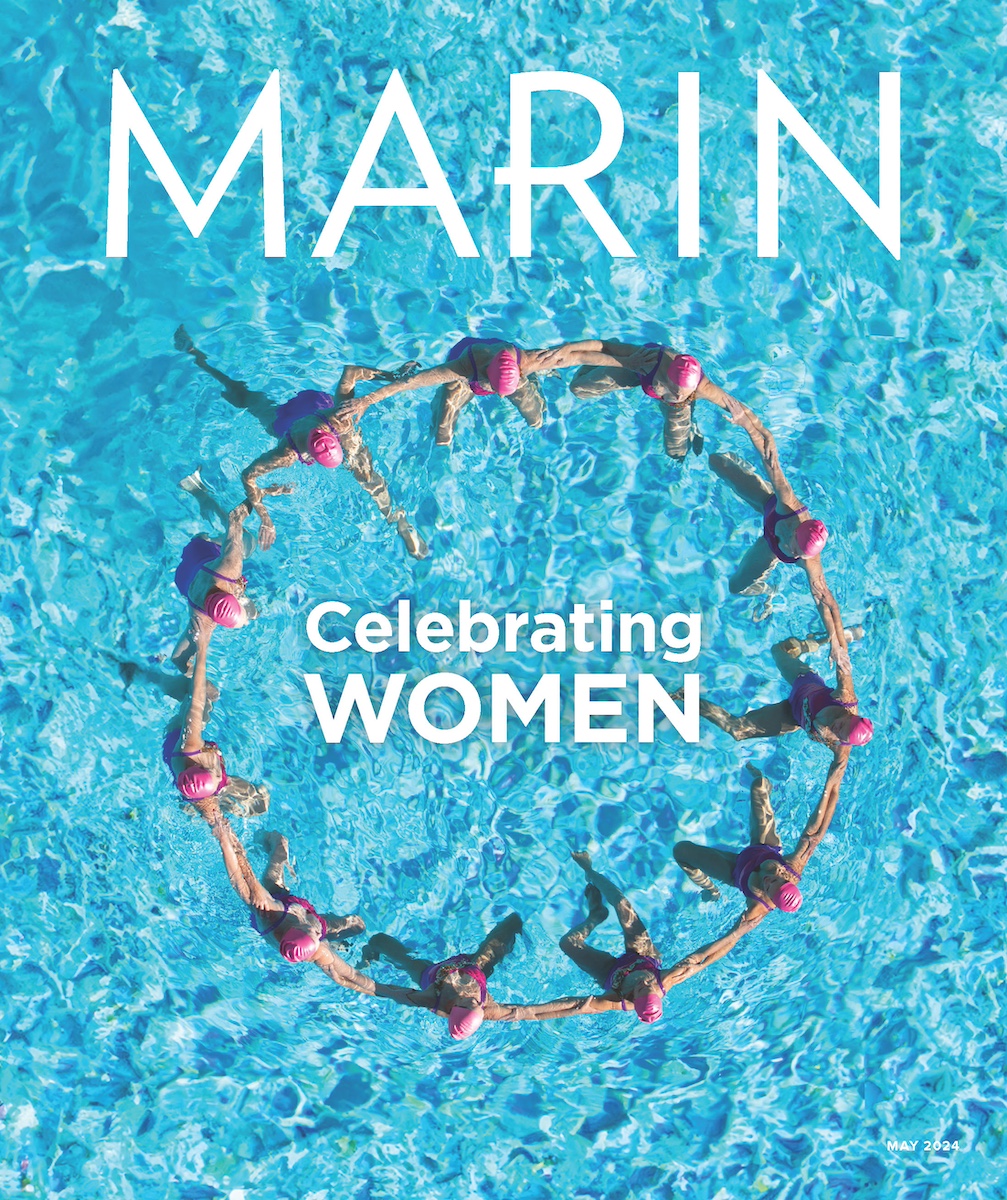Carleen and Jeff Cullen aren’t your typical environmentally minded Marin parents. Neither came from a commune; nor do they have geological, astrological or mythological middle names. In fact, a couple of years back they were prototypical Manhattanites enjoying the hard-earned but surprisingly big success generated from the sale of Carleen’s biotech company, Ovid Technologies, which she founded with her brother. They could live anywhere and they chose Marin. They could do anything—and they created a countywide school-based anti-global warming campaign called Cool the Earth (cooltheearth.org). Their first foray into making a difference was Cancel-a-Car, based on the concept that every 12,000 pounds of carbon emissions prevented is equal to taking a car off the road. How does it work? A simple coupon book. Students are given point-based actions in the form of coupons, to be returned to school once their parents complete specific energy-saving tasks. Examples: replace five lights with compact fluorescents to save 900 pounds of carbon; walk or bike to school (saves 540 pounds); turn down the hot water heater to 120 degrees (and save 550 pounds); use the cold wash cycle (save 1,500 pounds). As these actions are taken at home, the carbon-savings coupons are handed back to the teacher, tallied up and recorded, much like a fundraising chart.
To date, the program has “canceled” 10,320,477 pounds worth of carbon emissions, translating to taking 860 cars off the road.
“We really hadn’t been part of the environmental movement,” Carleen reflects. “We had a Prius because it made sense, and we happened to see An Inconvenient Truth, because we were looking for a movie near Sushi Ran.” However, they were so inspired by footage of stranded polar bears and shrinking ice caps, they spent the next six months researching the topic. “I can’t be 100 percent sure that global warming is ‘true,’” says Carleen. “But something is happening, and doing nothing is a tremendous risk to our future—and most importantly the future of our kids.”
Their first step was a private screening of that same movie at the Christopher B. Smith theater in San Rafael for fellow parents and administrators from the Bacich elementary school in Kentfield. That night the audience brimmed with enthusiasm for change. A month later, nothing had happened. They decided people need motivation, goals and most of all incentives.
“The program has four simple elements, says Carleen. “All that needs to happen is for one parent to bring it to the school, and for the administration to allow it to happen.” The program starts off with a play about a polar bear who lost his habitat (costumes provided by Cool the Earth). Coupon books are distributed, a tracking banner is displayed on campus, and then teachers (if they choose to) can spotlight particular areas of focus, such as junk mail or walking to school.
“There are those parents who don’t believe that global warming is real, and they object to our program,” notes Carleen. “We don’t want to ruffle any feathers, or teach children something contrary to their parents’ beliefs. However, in the end this is not a political statement; it is energy conservation—and the actions are simply good habits.” Last year, 27 schools in Marin embraced the program, the Cullens say; for next year they’re hoping for 50.
Cool at School
Marin Elementary students share their cool the Earth Tips:
“We got twisty light bulbs. Try to use the car less. We play outside and don’t always watch TV. If we don’t take care of the earth in my future the world will be a giant mess.”
—Luke Dahlin, 4th grade
“I love Cool the Earth. It made me want to get involved. Once I heard the information, I said, ‘Mom, I want to help the earth by changing the light bulbs and not wasting water.’”
—Violet Loo, 3rd grade
“I walk to school almost every day because of Cool the Earth. I try to make less garbage by eating all of my snack; if I can’t finish it I take it home. I think our school made a very big difference in the world.”
—Sara Wilson, 3rd grade
“I learned what happens when people are driving their cars too much and taking long showers. I think we can make the world a better place and the ice will stop melting and the animals will live.”
—Eli Neiman, 3rd grade
“I walked when I could and changed my lights and took shorter showers.”
—Michael Bowen, 3rd grade
“I try to use less carbon by walking and biking instead of driving; carpool, too. Recycle, and don’t buy plastic water bottles at the store; use metal reusable bottles. I take shorter showers. Turning lights off when you leave a room saves energy and saves money.”
—Katherine Neal, 5th grade
“To cool the earth, you need to use less water, less cars and less electricity and recycle a whole lot of garbage. When I wash my hands, I turn the water off while I am rubbing the soap all around on my hands, and after, I put the soap away and I turn the water back on.”
—Kian Afrookteh, 1st grade

Mimi Towle has been the editor of Marin Magazine for over a decade. She lived with her family in Sycamore Park and Strawberry and thoroughly enjoyed raising two daughters in the mayhem of Marin’s youth sports; soccer, swim, volleyball, ballet, hip hop, gymnastics and many many hours spent at Miwok Stables. Her community involvements include volunteering at her daughter’s schools, coaching soccer and volleyball (glorified snack mom), being on the board of both Richardson Bay Audubon Center. Currently residing on a floating home in Sausalito, she enjoys all water activity, including learning how to steer a 6-person canoe for the Tamalpais Outrigger Canoe Club. Born and raised in Hawaii, her fondness for the islands has on occasion made its way into the pages of the magazine.


